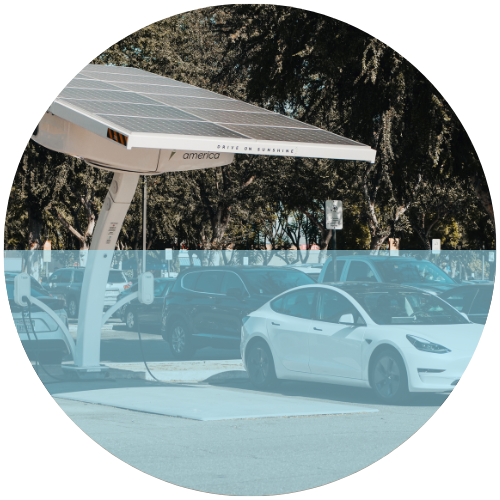The 2023 Australian Federal Budget brings good news for commercial solar installers, as new tax breaks have been introduced to encourage businesses to invest in solar and energy-efficiency projects.
The 9 May announcements were welcomed by the Smart Energy Council, which has described the Budget as a “significant step in responding to climate change and positioning Australia as a renewables superpower”.
Small Business Energy Incentive
The Small Business Energy Incentive is designed to promote energy efficiency among small businesses. It allows eligible SMEs to deduct an additional 20% of the cost of eligible depreciating assets that support electrification and energy efficiency in their tax return.
- Who’s it for? Small businesses with annual turnover under $50 million qualify.
- How does it work? Complimentary energy assessments are on offer to identify cost-saving opportunities. Up to $100,000 of total expenditure will be eligible for the incentive, with the maximum bonus tax deduction being $20,000 per business.
- What equipment does it cover? Upgrades and purchases of LED lighting, energy-efficient HVAC systems and refrigeration plus solar PV systems and batteries.
- How to apply? Businesses can apply through registered service providers who assess eligibility, conduct energy assessments, assist with equipment selection, and help with claiming the incentive.
How will this benefit your commercial solar business?
This tax break makes adopting solar and other energy-efficiency and decarbonisation equipment a lot more affordable for businesses. When combined with a Smart Ease payment solution, it allows businesses to install a commercial solar system without spending a cent upfront – and enjoy a tax incentive at the same time.
It’s a no brainer!
There’s also the opportunity to become a registered service provider – stay tuned for more information on this.
The ‘New’ Instant Asset Write-Off (IAWO)
The Instant Asset Write-Off in its current form ends on 30 June 2023, but a scaled-back version has been announced from 1 July. Here are the new rules:
- Who’s it for? Small businesses with an annual turnover of less than $10m.
- What’s on offer? Businesses can deduct the entire cost of eligible assets that are purchased and first used between 1st July 2023 and 30th June 2024.
- What equipment does it apply to? Business equipment costing less than $20,000. The threshold applies to each asset so businesses can buy multiple assets under this provision. Equipment costing more than $20,000 cannot be immediately deducted but can continue to be placed into the small business simplified depreciation pool and depreciated at 15% in the first income year and 30% each income year after that.

How will this benefit your commercial solar business?
For smaller projects under $20,000 value, customers will be able to write off the cost of the equipment in the year they buy and start using it. This allows businesses to reduce their tax liability immediately, which provides a cash flow advantage.
The $20,000 limit means the revised IAWO will suit lower value projects like smaller solar installs, upgrades, battery storage, HVAC equipment and EV charging infrastructure.
Emissions Reduction Fund (ERF)
The ERF is not new – it launched in 2014 – but it received a fresh funding injection in the 2023 Budget.
It works like this:
- Businesses, organisations and individuals register themselves on the ERF website.
- They submit projects that help to reduce emissions to the ERF (must be done before the project starts).
- The Government purchases the resulting emissions reductions as Australian Carbon Credit Units (ACCUs).
- These ACCUs can be traded, sold, or used to meet compliance obligations.
How will this benefit your commercial solar business?
The ERF gives businesses the chance to create a new revenue stream when they adopt commercial solar and storage. If this is something your customers are able to manage, it can be a bonus to the energy bill savings generated by switching to solar.

Hiring and training staff
A new five-year National Skills Agreement, which will launch in January 2024, was announced in the Budget. It includes:
- Financial support for apprentices and employers, including a $10,000 living allowance for eligible apprentices.
- An additional 300,000 fee-free TAFE and vocational education training places for apprentices in critical industries including clean energy.
- Continuation of the New Energy Apprenticeship scheme, which includes Priority Wage Subsidy for eligible employers.
How will this benefit your commercial solar business?
Benefit from fee-free TAFE positions, wage subsidies for apprentices and further incentives for hiring apprentices from minority groups like women and First Nations Australians.
Energy Bill Relief Fund for small businesses
Designed for small businesses struggling with high energy costs, the Energy Bill Relief Fund provides a one-time payment to help with energy bills.
- Who’s it for? Small businesses on a separately metered business tariff with their electricity retailer whose annual electricity consumption is below the threshold for their state or territory.
- How much is on offer? Between $325 and $650 depending on state or territory.*
- How to access? Businesses don’t need to apply – the rebate will be automatically applied to their energy bills if they meet the criteria.
How will this benefit your commercial solar business?
Small businesses remain eligible for this relief even after adopting solar, as the majority will still be purchasing energy from the grid.
The fact that energy bill relief has become a Budget priority means that businesses and organisations out there are hurting. This gives you an excellent conversation-starter with stalled or prospective prospects. By accessing the Energy Bill Relief fund rebate and installing solar and/or energy-efficiency equipment, businesses can maximise energy savings while doing their bit for the planet.
In summary, the 2023 Federal Budget in Australia is good news for commercial solar installers. Several new schemes and incentives will make it financially more appealing for businesses to adopt solar, storage and energy-efficiency equipment. This will increase demand for solar products and services as the race to decarbonise Australia accelerates.
Sign up for Smart Hub to stay informed on the latest news and insights, plus access free training, webinars and events!

